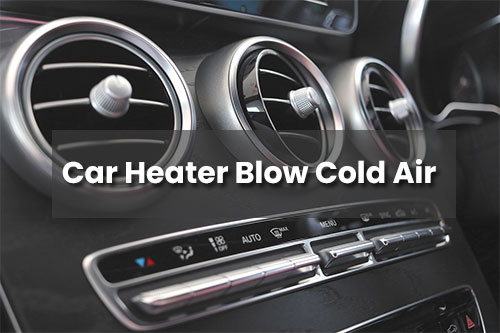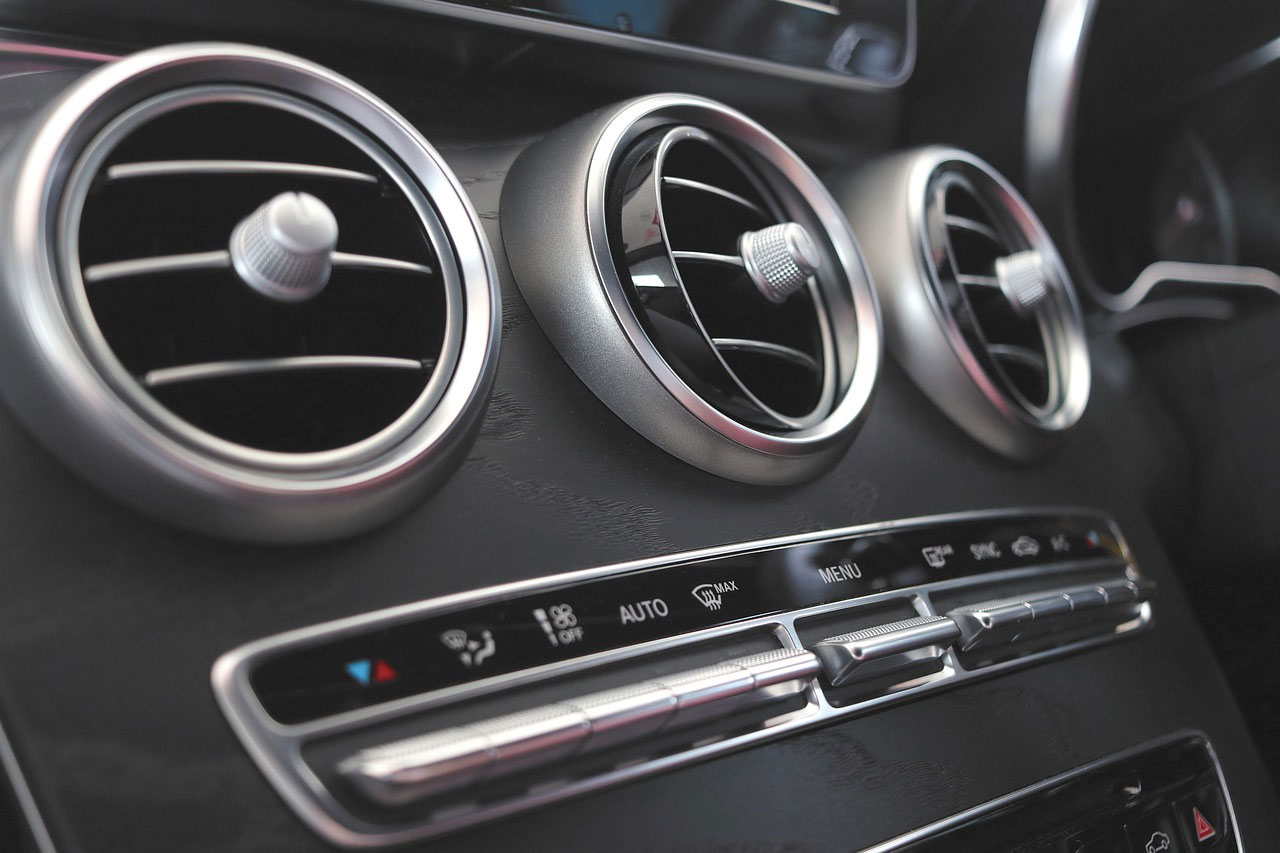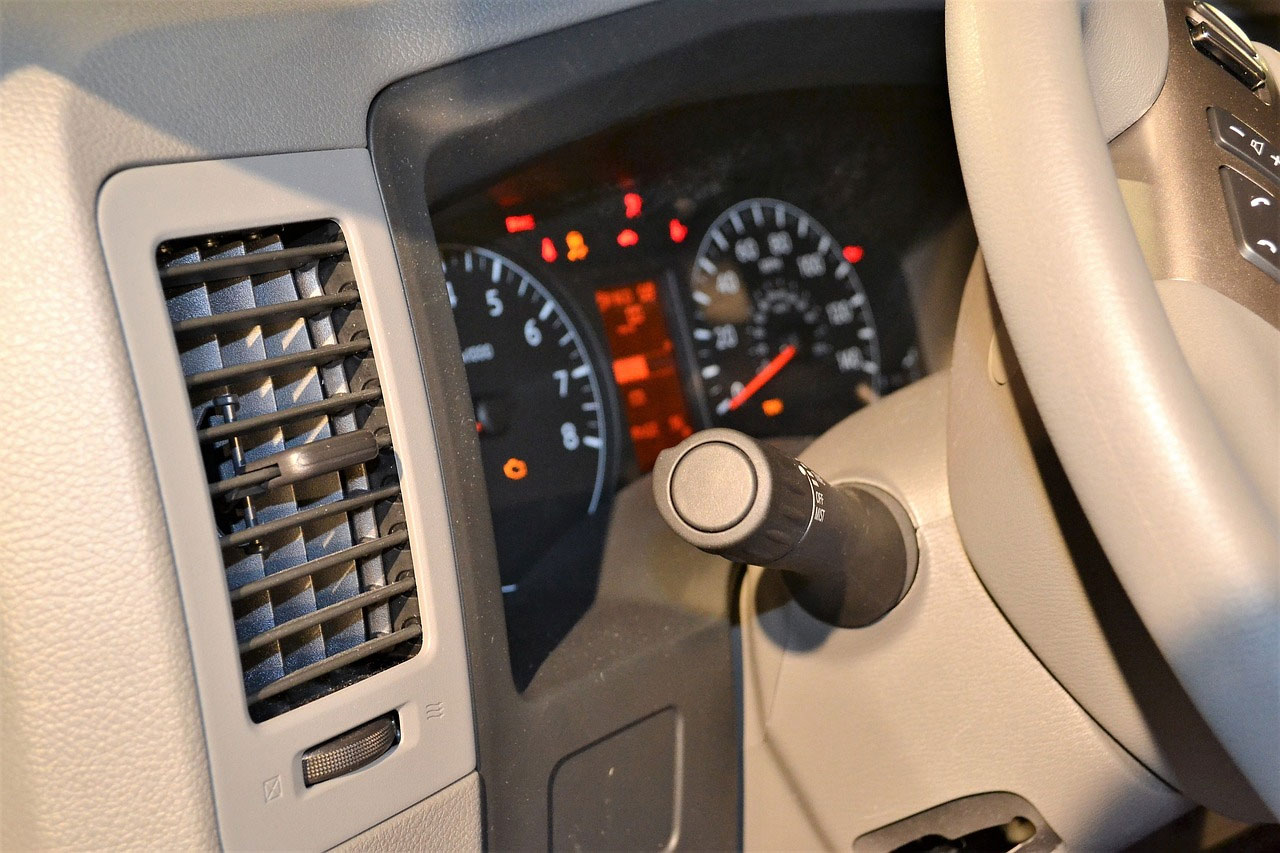Why Does Car Heater Blow Cold Air When Idling?

If you notice that the heater in your car is blowing cold air, the system may not have enough coolant. In addition to preventing the engine from overheating, the coolant, which is typically a mixture of water and antifreeze, serves as a heat source for the heating system. As a result, the heater core won't function properly if there isn't enough coolant.

Why does my heat only work when the car is moving?
If you notice that your car heater only works when driving, it may be because the coolant is low and your engine is generating a lot of heat. Coolant helps to collect this generated heat by transporting it to your vehicle's radiator for cooling. If the coolant level is low, the heat will not be transported efficiently and you will only feel warmth from the heater when the car is moving and generating enough heat to outweigh the cooler air temperature.
How do I know if my thermostat is stuck open?
The thermostat is a vital component to keeping your engine at the optimal operating temperature. If it becomes stuck in the open position, it will constantly push coolant into the engine and cause the operating temperature to drop. This can be easily detected by checking your temperature gauge; if the needle barely increases or remains at the lowest setting, then your thermostat is likely stuck open.
Why won't my heat stay on in my car?
If your heater isn't working properly, the most common culprit is low coolant. This can be caused by a leak or simply by evaporation over time. If there's not enough coolant in the system, it can't do its job of transferring heat from the engine to the cabin. Another possibility is a stuck-open thermostat. This prevents the engine (and therefore the coolant) from reaching operating temperature, so there's no heat to transfer. A clogged heater core will also restrict coolant flow and prevent heat from reaching the cabin.
Will a bad thermostat make the heater blow cold air?
The coolant in a vehicle will not circulate to the heater until the engine has reached a certain temperature. If the thermostat is broken, the vehicle will not know the engine is warm and as a result, the coolant will not be circulated to the heater core. This means that the air coming from the vents will remain cold.
Tips how to maintain car AC

1. Keep the engine properly tuned.
One of the most important aspects of car maintenance is keeping the engine properly tuned. This means that the air and fuel mixture in the engine is correct, and that there are no worn or missing parts. Over time, this can cause problems with the engine, including decreased performance and possible failure. It is important to keep your car's engine properly tuned so that it runs smoothly and delivers maximum performance.
2. Check your coolant level regularly.
One of the easiest ways to ensure your car’s longevity is to keep it properly maintained. One of the most important things you can do is check your coolant level regularly and top off as needed. Over time, a low coolant level can cause your engine to overheat, which can lead to costly repairs. By checking your coolant level regularly and topping it off as needed, you’ll help keep your car running smoothly and prevent any costly repairs down the road.
3. Inspect your radiator and hoses for leaks or damage.
Your car's radiator is a vital component that helps keep your vehicle's engine cool. It also helps to transfer heat away from the engine, and it can be damaged if it leaks or if it becomes clogged with debris. If you notice any of these problems, it's important to take action before they become worse.
To inspect your radiator for leaks, first remove the cap on the top of the radiator. Then, use a hose to check for any water or fluid leaking from the unit. If there is a leak, fix it as soon as possible by replacing the hose or cap, or by filling the radiator with hot water and sealing the cap.
If you notice any damage to your radiator, don't wait to take action. First, try to determine what caused the damage. Next, find a replacement part and get it installed as soon as possible. If you can't find a replacement part or if the damage is too severe, your car may need to be fixed entirely. In either case, be sure to contact a mechanic for help in getting everything done properly.
4. Replace your engine's air filter as needed.
It's important to keep your car's engine running at its peak performance by regularly replacing the air filter. The air filter helps to clean the air that goes into your engine, and it can also help to prevent dirt and debris from entering the engine. If your car's engine starts to produce less power or if it makes a loud noise, it may be time to replace the air filter.
5. Get regular oil changes as recommended by your car's manufacturer.
Regularly checking your car's oil level and replacing the oil as recommended by your car's manufacturer is one of the most important things you can do to keep your car running smoothly. Over time, oil can become contaminated with dirt, dust, and other debris, which can cause your engine to overheat and potentially fail. By regularly changing your car's oil, you'll help keep your vehicle running safely and efficiently.
6. Avoid excessive idling.





